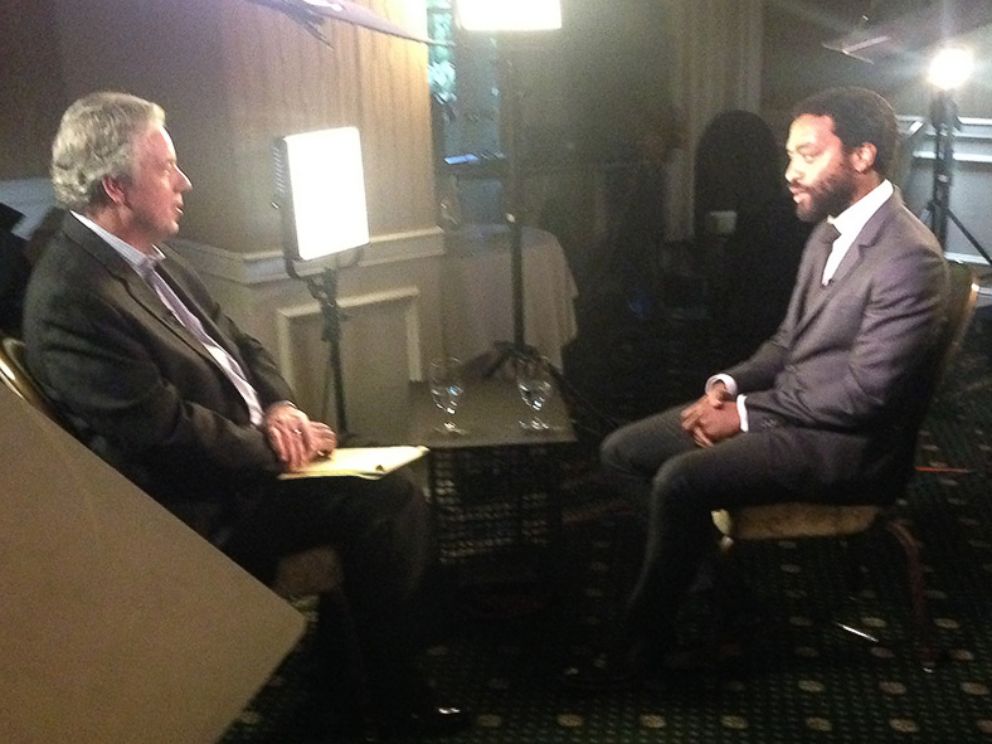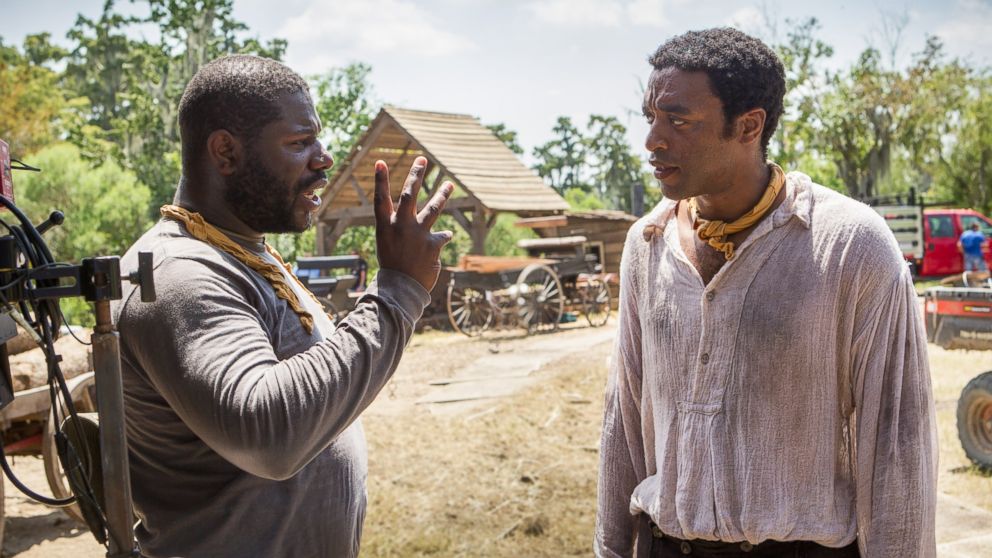Making '12 Years a Slave' Was 'Like Dancing With Ghosts'
Jan. 22, 2014— -- As the cast and crew of "12 Years a Slave" shot in 108-degree heat on a centuries-old Louisiana Plantation, a place which once bore witness to the same atrocities of America's original sin that they were now re-creating, filmmakers couldn't help but feel the eerie alchemy of their work.
Both "12 Years a Slave" director Steve McQueen and lead actor Chiwetel Ejiofor said making the film was like "dancing with ghosts."
"We really felt like we were sort of dancing with ghosts," said Ejiofor, who has just been Oscar nominated for his starring role. "We were right there in the place where these things happened and we felt the place was alive with the sort of energy."
"It was perfumed with the scent of the past," added McQueen, who is also nominated for an Oscar. "There was a plantation... where the slaves lived. It was in the air, it was in the soil, the blood, the Earth. So you're in the presence of a time and a place which had a lot of pain, but at the same time, had a lot of beauty."

Just five months since it was first shown to an audience, "12 Years a Slave" is already being called a defining film about slavery. Nominated for the Best Picture Oscar, the film tackles a subject overlooked throughout much of Hollywood's history.
"For me, it was a hole in the canon of cinema," McQueen said.
Oscars 2014: Complete List of Nominations
There had been the racist "Birth of a Nation" in 1915, the lurid '70s potboiler, "Mandingo," the serio-comic vengeance fantasy, "Django Unchained," last year. But McQueen, 44, wanted to tell a slave story from a new perspective.
"Eventually, after tossing and turning about it, thinking about it, for me, it was a free man, a free African-American, who was kidnapped into slavery," McQueen said. "The story of an African brought to America had been done before in 'Roots,' very effectively, but for me what was interesting was that this person was actually an American and was kidnapped and dragged into slavery."
Much of the narrative and dialogue in "12 Years a Slave" come directly from the memoir of Solomon Northup, a northern musician cruelly dispatched to a series of southern slave owners, beginning in 1841. About 170 years later, the brutality of his story has been chronicled in "12 Years a Slave."
But some of what was in Northup's memoir had to be toned down for movie audiences.

"There's no way on earth we could have made the original into a film," McQueen said. "The violence was so bad that we had to sort of introduce it in a way where we could... somehow not push people away but to sort of be drawn into the narrative."
From the start, McQueen knew he wanted Ejiofor to play the role of Solomon Northup, but the 36-year-old actor initially resisted McQueen's entreaties.
"I never had seen a film inside this experience, from inside the slave experience, and I felt the responsibility of it," Ejiofor said. "I needed to have a kind of moment to work out just how to get there."
Chiwetel Ejiofor and Others React to Their Oscar Nominations
Ejiofor's character, crushed by intolerable circumstances, fights for more than freedom. "He's having a battle with his soul," McQueen said.
"He's trying to hold it together," he continued. "When you come into the environment as someone who has a wider understanding of what life is, it's very difficult for someone to hold on to your mind. It was a fight for his mind."




